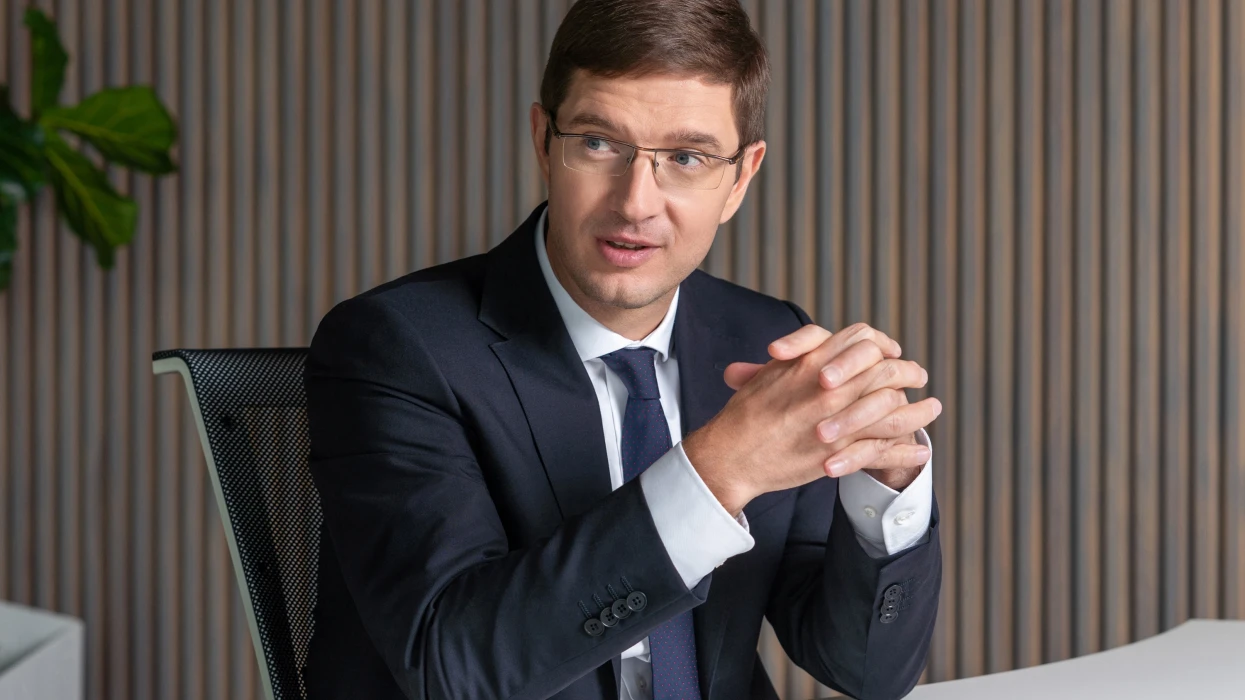The economic crisis caused by the COVID-19 pandemic does not only present us with problems but also opportunities for an economic and social reboot of the global economy, accelerating the energy transition to address environmental problems. To succeed in transforming the economy, Ukraine needs to draw up a long-term strategy and create competitive conditions for mobilising investment, according to participants of the online discussion “The Davos Agenda 2021: Conclusions for Ukraine,” which was jointly organised by DTEK and LIGA.net.
“Without drawing up a long-term strategy and creating competitive advantages for investors, Ukraine will be unable to mobilise investment, internationally or domestically, to reduce its economy’s carbon footprint,” said Dmytro Sakharuk, the Executive Director of DTEK. The world today is characterized by fierce competition between countries, and money is made available to whoever wins this competition. Dmytro Sakharuk is convinced that Ukraine should consider developing its competitive advantages.
In turn, Vladyslav Rashkovan, Deputy Executive Director of the International Monetary Fund, said that the government’s key objectives in terms of decarbonisation include designing tools and strategies to encourage people to consume more responsibly and for companies to invest more responsibly.
“International organisations, international banks, countries, governments, companies, people — everyone must be responsible for the environment and consumption, this is how we will overcome the global crisis and the pandemic,” said V. Rashkovan.
Dmytro Sakharuk is confident that, alone, neither the Ukrainian government, business, or society is able to respond to the challenges that exist now and will exist in the “post-COVID” period. “So, it is important that as many businesses as possible emerge that practice stakeholder capitalism — that is, businesses operating in the interests of society as a whole,” he noted.
Vice Chair of the Supervisory Board of NJSC Naftogaz Yulia Kovaliv added that the concept of stakeholder capitalism involves not only making a profit, but also understanding that no business today can succeed without working with society and without focusing on the environment.
“Not only business, but also the government must take this concept into account,” Kovaliv said. She thinks that a rapid recovery of Ukraine’s economy means, first of all, overcome the coronavirus, making available the resources, financing for business, and getting investors back by offering a favorable business climate.
As noted by Roman Sheremeta, a professor of economics at Case Western Reserve University (USA), an experiment was recently conducted in America to create two identical companies, one with a social function and the other without it.
“This controlled experiment demonstrated that a company operating on the principle of stakeholder capitalism drew better and more productive employees, was more successful, and made more profit,” said R. Sheremeta.
In turn, D. Sakharuk stressed the importance of doing business based on ESG principles, a very serious global trend. “As a business, you will be unable to develop if you do not support the government, if you do not support the environment, and so on. This is the reality that we are already in. DTEK adopted its ESG strategy in 2020, and we are doing a lot in this sense: we not only talk about it, but also show the results,” said the Executive Director of DTEK.
The Executive Director of the European Business Association Anna Derevyanko noted that, in addition to having a strategy and a plan of overcoming the crisis, it is critical to effectively implement this plan. “Unlike in the world’s developed countries, where business received serious support from the government during the crisis through various incentives, businesses barely survived in Ukraine,” said A. Derevyanko. According to her, business representatives now need government support in the form of structural reforms and the promotion of equal rules of the game for all.







